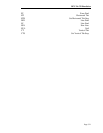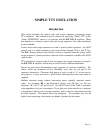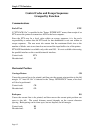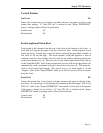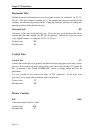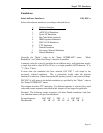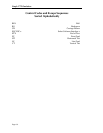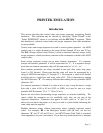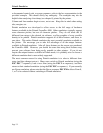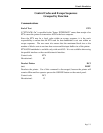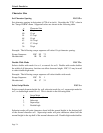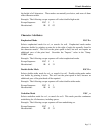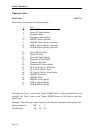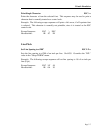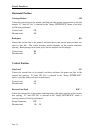Page 7-1
PRINTEK EMULATION
Introduction
This section describes the control codes and escape sequences comprising Printek
emulation. This emulation may be selected by specifying "Mode: Printek" in the
"Setup: INTERFACE" menu, or via software with the ESC ESC 7 sequence. While
this emulation is selected, control codes and escape sequences from other emulations
are not available.
Control codes and escape sequences are used to control printer operation. An ASCII
control code is a single character in the range 00 hex through 1F hex, and 7F hex.
The ESC (Escape) control code (1B hex) is used to introduce character strings called
escape sequences, which provide an extension of the commands available with ASCII
control codes.
Some escape sequences accept one or more numeric parameters. If a sequence
accepts one numeric parameter, it will be represented as "n". If a sequence accepts
more than one numeric parameter, they will be represented as "n1 n2 ... nx".
Since numeric parameters are always encoded in one byte, their values may range
from 0 to 255 decimal. Please note that the value will never be represented by a
string of ASCII decimal digits ("0" through "9"). For example, a value of 66 decimal
would be sent as a single byte with a hex value of 42. This is equivalent to sending
the ASCII character "B". It is entirely different than sending the two printable ASCII
characters "66".
If a numeric parameter is limited to a value of zero or one, it may be sent as a single
byte with a value of 00 or 01 hex (NUL or SOH), or it may be sent as a single
printable ASCII character "0" or "1" (30 or 31 hex).
Spaces are used when documenting escape sequences to increase readability. The
spaces within the sequences are for readability only; they are not part of the
sequences themselves. Characters that appear in italics (such as "n" and "n1 n2"
above) are not sent to the printer as is; they are used as a place holder indicating that
some value must be supplied.
Multiple character strings without intervening spaces typically represent control
codes. For example, BS is the Backspace control code (08 hex), not the two
characters "B" and "S" (42 and 53 hex). An ASCII Control Code Table is contained
in the appendices for your convenience. If you have any doubt about how to interpret



